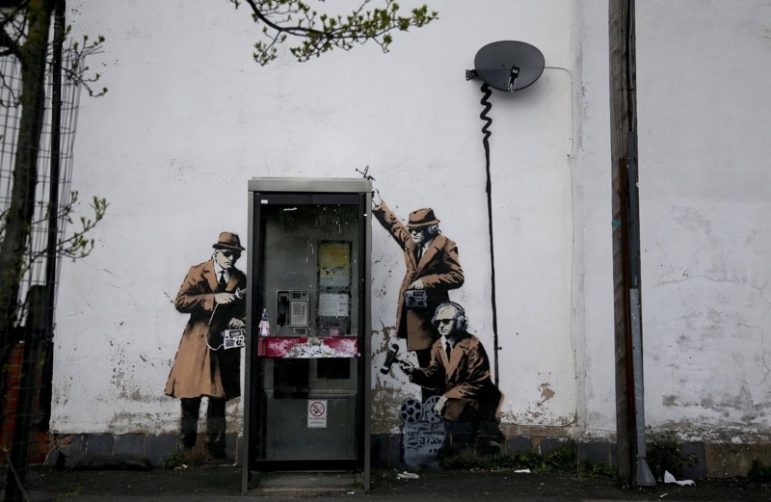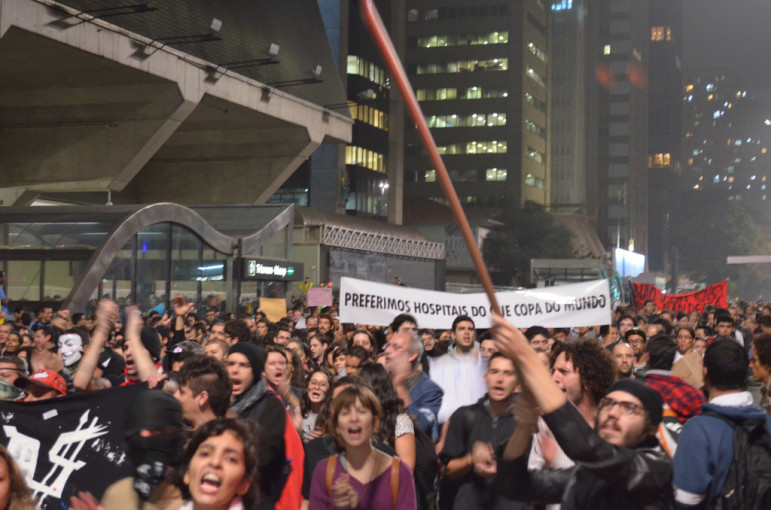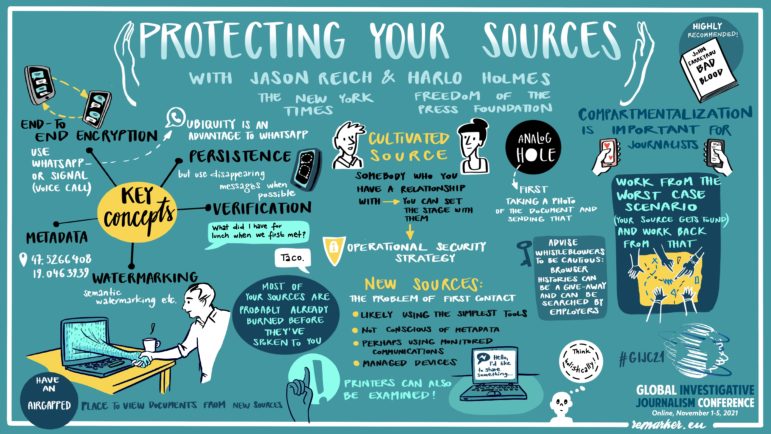

A Guide to Journalism Safety Organizations
The figures are grim for our colleagues around the world. Since 1992, 978 journalists have been killed, according to the Committee to Protect Journalists. More than 60 percent have 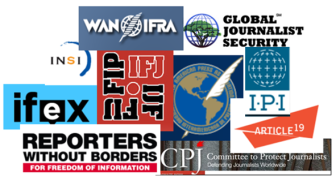 been murdered with impunity; that is, no killer was ever brought to justice. And today, 232 journalists are in prison worldwide, many for doing what would be considered routine reporting in much of the world.
been murdered with impunity; that is, no killer was ever brought to justice. And today, 232 journalists are in prison worldwide, many for doing what would be considered routine reporting in much of the world.
The problem, moreover, appears to be growing worse. Data from CPJ and the International Press Institute indicate that the killings– after staying fairly constant during the 1990s, jumped by more than 30 percent over the previous decade, according to a 2012 report by the Center for International Media Assistance. Behind the upsurge in dead journalists: the wars in Iraq and Afghanistan and attacks in Mexico and the Philippines.
Although high profile killings of Western journalists — like Marie Colvin or Daniel Pearl — get international attention, the vast majority of fatalities are staff members of local media. And the killings are the tip of the iceberg. Beatings, kidnappings, imprisonment, and threats against journalists are far more numerous, and can be just as effective at silencing them.
Threats come from many directions: from drug cartels or rebel groups; autocratic governments or ethnic enemies; stray bullets or terrorist bombs. Indeed, it may be the widely disparate nature of the threats that makes a “one size fits all” solution so elusive.
Half a dozen professional organizations are actively engaged in the problem, as are representatives of major multilateral organizations, among them the United Nations and the Organization for Security and Cooperation in Europe.
As part of the Global Investigative Journalism Network’s series of Resource Pages, we are publishing this brief guide to the major international press freedom and safety groups that concern themselves, in some fashion, with the issue of violent attacks on journalists. It is reprinted from Empowering Independent Media, published by the Center for International Media Assistance.
Article 19: Based in London. Article 19 monitors, researches, publishes, lobbies, campaigns, sets standards and litigates on behalf of freedom of expression wherever it is threatened. Its work includes campaigns to protect journalists from threats to their lives, families and livelihoods.
Committee to Protect Journalists (CPJ):  Based in New York. Founded in 1981 by U.S. foreign correspondents concerned about “the often brutal way” local journalists were being treated in other countries. Managed by a board of directors made up of professional journalists, CPJ produces annual country reports, conducts international missions, and maintains its Impunity Index, among many other aggressive activities.
Based in New York. Founded in 1981 by U.S. foreign correspondents concerned about “the often brutal way” local journalists were being treated in other countries. Managed by a board of directors made up of professional journalists, CPJ produces annual country reports, conducts international missions, and maintains its Impunity Index, among many other aggressive activities.
Global Journalist Security: Founded in 2011, it is a Washington-based consulting firm  that offers security training and advice to media workers, citizen journalists, human rights activists, and NGO staff. The group also trains security forces in developed nations as well as in emerging democracies that aspire “to meet international press freedom and human rights standards how to safely interact with the press.”
that offers security training and advice to media workers, citizen journalists, human rights activists, and NGO staff. The group also trains security forces in developed nations as well as in emerging democracies that aspire “to meet international press freedom and human rights standards how to safely interact with the press.”
 Inter American Press Association (IAPA): Based in Miami, FL. Founded in the late 1940s; now includes 1,400 member publications from Canada to Chile. It monitors and advocates for press freedom throughout the hemisphere; special programs include a Rapid Response Unit deployed when a journalist is killed, twice-yearly reports on press freedom issues in each country, and publication of a “Risk Map” to guide journalists working in the most dangerous countries. IAPA also operates its own separate “Impunity Project,” with detailed information on journalist murders throughout the region.
Inter American Press Association (IAPA): Based in Miami, FL. Founded in the late 1940s; now includes 1,400 member publications from Canada to Chile. It monitors and advocates for press freedom throughout the hemisphere; special programs include a Rapid Response Unit deployed when a journalist is killed, twice-yearly reports on press freedom issues in each country, and publication of a “Risk Map” to guide journalists working in the most dangerous countries. IAPA also operates its own separate “Impunity Project,” with detailed information on journalist murders throughout the region.
International Federation of Journalists (IFJ): Based in Brussels. Launched, in its 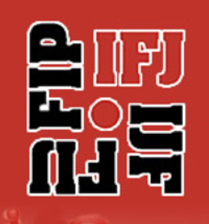 modern form, in 1952, IFJ describes itself as the world’s largest association of journalists. It monitors press freedom issues and advocates for journalists’ safety and was a founder of the International News Safety Institute.
modern form, in 1952, IFJ describes itself as the world’s largest association of journalists. It monitors press freedom issues and advocates for journalists’ safety and was a founder of the International News Safety Institute.
International Freedom of Information Exchange (IFEX): Perhaps the most visible role of this Toronto-based organization is as a source of information; it operates what it calls “the world’s most comprehensive free expression information service,” with a weekly e-mail newsletter, a regular digest of articles related to press freedom, and “action alerts” from members around the globe. It has more than 90 member organizations in more than 50 countries. In 2011it established November 23 as International Day to End Impunity.
International News Safety Institute (INSI). Based in Brussels. Created in 2003 as a 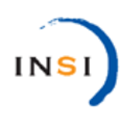 result of an initiative by the IFJ and IPI, it describes itself as “a unique coalition of news organizations, journalist support groups and individuals exclusively dedicated to the safety of news media staff working in dangerous environments.” It conducts training, issues safety tips and manuals, and monitors journalists’ casualties of all kinds, whether violent attacks or accidents.
result of an initiative by the IFJ and IPI, it describes itself as “a unique coalition of news organizations, journalist support groups and individuals exclusively dedicated to the safety of news media staff working in dangerous environments.” It conducts training, issues safety tips and manuals, and monitors journalists’ casualties of all kinds, whether violent attacks or accidents.
 International Press Institute (IPI): Created in 1950, the Vienna-based IPI calls itself “a global network of editors, media executives and leading journalists.” A founder of INSI, it monitors press freedom with an annual World Press Freedom Review, conducts regular missions to countries where it is at risk, and tracks attacks on journalists.
International Press Institute (IPI): Created in 1950, the Vienna-based IPI calls itself “a global network of editors, media executives and leading journalists.” A founder of INSI, it monitors press freedom with an annual World Press Freedom Review, conducts regular missions to countries where it is at risk, and tracks attacks on journalists.
Reporters Without Borders (Reporters Sans Frontières, or RSF): Founded in 1985 and based in Paris, RSF gathers information on press freedom violations and sponsors  international missions as needed. Among other activities it provides financial assistance to journalists or news organizations to help defend themselves, and to the families of imprisoned journalists, and works to improve the safety of journalists, especially in war zones.
international missions as needed. Among other activities it provides financial assistance to journalists or news organizations to help defend themselves, and to the families of imprisoned journalists, and works to improve the safety of journalists, especially in war zones.
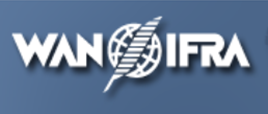 World Association of Newspapers and News Publishers (WAN-IFRA): Founded in 1948 and based in Paris, WAN represents more than 18,000 publications on five continents. In addition to providing support and information on basic industry issues, WAN has a special focus on press freedom, monitoring attacks on journalists, and “conducts long-term campaigns and targeted events with the aim to raise public awareness about critical press freedom matters.”
World Association of Newspapers and News Publishers (WAN-IFRA): Founded in 1948 and based in Paris, WAN represents more than 18,000 publications on five continents. In addition to providing support and information on basic industry issues, WAN has a special focus on press freedom, monitoring attacks on journalists, and “conducts long-term campaigns and targeted events with the aim to raise public awareness about critical press freedom matters.”
This guide is part of a series of Resources pages on gijn.org and is excerpted and adapted from Empowering Independent Media: U.S. Efforts to Foster a Free Press and Open Internet Around the World, 2nd edition, Center for International Media Assistance, 2012.


